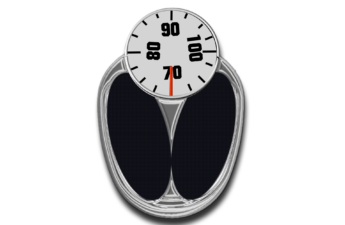Category: Nutrition
What does weight-inclusive health care mean?
Weight-inclusive health care means a focus on better health with no weight loss required.
Can I actually target areas to lose fat, like my belly?
Our bodies decide where we store fat and where we lose it from first. And over-the-counter pills and supplements cannot effectively target fat loss either.
What is the OMAD diet? Is one meal a day actually good for weight loss? And is it safe?
Like most weight-loss programs, the OMAD diet makes big and bold promises. Here’s what you need to know about eating one meal a day and what it means for weight loss.
Should you get your vitamin D levels checked?
When is low vitamin D a potential concern? And when might you need to get your levels tested?
Federal shutdown should not immediately threaten food aid for WA mothers and kids
WIC provides food assistance to mothers and children up to 5 years old. In July, about 130,400 people received benefits from the program in Washington, including around 25,600 infants and 76,400 kids older than 1 year.
Prescriptions for fruits and vegetables can improve the health of people with diabetes and other ailments, new study finds
Patients’ blood sugar levels, blood pressure and weight improved.
Aging with a healthy brain: How lifestyle changes could help prevent up to 40% of dementia cases
By adopting positive lifestyle habits, we could theoretically prevent about 40 per cent of dementias. While there is no guarantee of warding off cognitive decline, people can greatly reduce their risk of dementia by increasing their physical activity levels, ensuring they are mentally active and increasing social contact, while avoiding smoking and limiting alcohol consumption.
Running on empty: Female athletes’ health and performance at risk from not eating enough
When the energy consumed from food becomes insufficient to meet the demands of high physical activity levels, a state of imbalance occurs called low energy availability. Low energy availability can disrupt hormones and metabolism in as little as five days.
Seven techniques to avoid weight regain, approved by experts
Losing weight is challenging. But as anyone who has ever successfully lost weight knows, it’s avoiding weight re-gain that’s the real challenge. But while weight regain may be a common experience, that doesn’t mean there aren’t many evidence-backed things you can still do to prevent it in the long run:
Australian study links holiday feasting to yo-yo weight gain
Easter, a time of chocolate eggs and hot cross buns, saw a an average gain of about 244g (0.29% of average participant body weight). The Australian summer months associated with Christmas and New Year, feasts and festivities, had an even larger average increase of approximately 546g (0.65% of average participant body weight). We also found a weekly cycle, with weight peaking on the weekend, when many people are likely letting their hair down after a busy work week and may be drinking and eating more.
Aspartame: popular sweetener could be classified as a possible carcinogen by WHO – but there’s no cause for panic
So far, the regulators have all agreed that it’s safe for a person to consume 40mg of aspartame per kilogram of their body weight per day. That’s about 2.8g for a 70kg adult – and is much more than most people consume.
Fiber is your body’s natural guide to weight management, say UW expert
Rather than cutting carbs out of your diet, eat them in their original fiber packaging instead
Intermittent fasting and calorie counting about equal for weight loss – new study
Is intermittent fasting any better than calorie counting for losing weight? A new study, published in the Annals of Internal Medicine, aimed to provide the answer. It showed that the two methods could be equally effective – if undertaken with professional counselling.
Preventive healthcare is effective – lessons from Finland, Japan and Singapore
Promoting healthy lifestyles, early disease detection and timely treatment could reduce chronic diseases such as type 2 diabetes, heart disease and cancer. And reducing the number of people with these chronic conditions would lead to a significant decrease in healthcare spending – which has been steadily rising in real terms.
New drugs that melt away pounds present more questions than answers but could be key tools in reducing the obesity epidemic
While these medications hold promise, they are not wonder drugs. In my view, they warrant much more research before they become the basis for a new weight management protocol.












